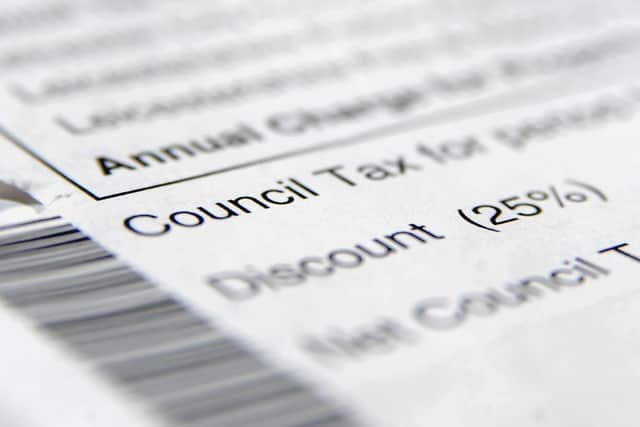Mid Sussex District Council among minority not facing council tax deficit
and live on Freeview channel 276
Many local authorities elsewhere in England are facing huge funding gaps, with the national deficit estimated to exceed £500 million for the 2020-21 financial year.
Data from the Ministry of Housing, Communities and Local Government shows Mid Sussex’s council expects to see a surplus of £1,288,000 in its collection fund for the period.
Advertisement
Hide AdAdvertisement
Hide AdIt makes it one of just 41 councils to have seemingly avoided the ‘financial hole’ caused by a drastic national fall in anticipated council tax income.


The collection fund represents income and expenditure relating to council tax and business rates, with estimates used to help set local authority budgets.
In response to the pandemic, the government asked councils to estimate the impact of Covid-19 on the collection of funds for 2020-21.
More than 250 local authorities across England reported estimated deficits of between £14,000 and £17 million.
Advertisement
Hide AdAdvertisement
Hide AdThere were 10 councils that indicated they were not in deficit, but did not report surplus figures.
The national anticipated deficit rises to £546 million when surpluses are not taken into account, the figures show.
The figures do not reflect the council’s overall financial position after other funding and spending is accounted for, nor the impact of the tax income guarantee scheme announced by the government in November.
Under this scheme, local authorities will be reimbursed for up to 75 per cent of irrecoverable council tax and business rate losses, with payments expected to begin in the near future.
Advertisement
Hide AdAdvertisement
Hide AdRob Whiteman of the Chartered Institute of Public Finance and Accountancy, a trade body, said the scheme would compensate councils for a “large chunk” of the deficit.
He added: “Ultimately, this financial hole isn’t as deep as it looks.
“But with the Government ending Covid support by the end of the year, it’s hard to see how councils will be able to afford to repay the remaining deficit without additional ‘help’ from taxpayers in the future.”
Separate MHCLG figures show that, across England, council overspend due to the pandemic totalled around £6.9 billion in March, while losses were calculated at around £5.1 billion.
Advertisement
Hide AdAdvertisement
Hide AdAn MHCLG spokesperson said: “We’ve committed over £36 billion to help councils support their communities and local businesses during the pandemic.
“We’re also providing councils with £670 million of new grant funding to enable them to continue reducing council tax bills for those least able to pay, including households financially hard-hit by the pandemic.”
“It has been a magnificent effort by our Revenues Team to deliver such excellent performance despite a once in a century pandemic,” said councillor Ruth de Mierre, Mid Sussex District Council cabinet member for customer services.
“The diligence and hard work of our Council Officers means we’re one of only 41 local authorities in England not facing a Council Tax deficit.”
Advertisement
Hide AdAdvertisement
Hide AdCllr de Mierre said the council had tried to identify residents who may need additional support and arrange sustainable ways of making payments.
“The financial support provided by the Government, especially the job Furlough scheme, has been a huge help in minimising new applications for Council Tax support and we’re grateful for the additional funding that has been provided to local authorities, such as Council Tax Hardship Relief,” she said.
“We’ve done extremely well to hit our Council Tax collection targets but it’s important to remember that the financial cost of supporting our communities through the pandemic has been huge,” Cllr de Mierre added.
“We had to use £1.4 million from General Reserves last year to cover the losses caused by Covid-19 and the pandemic will continue to have a significant impact on our finances for years to come.”